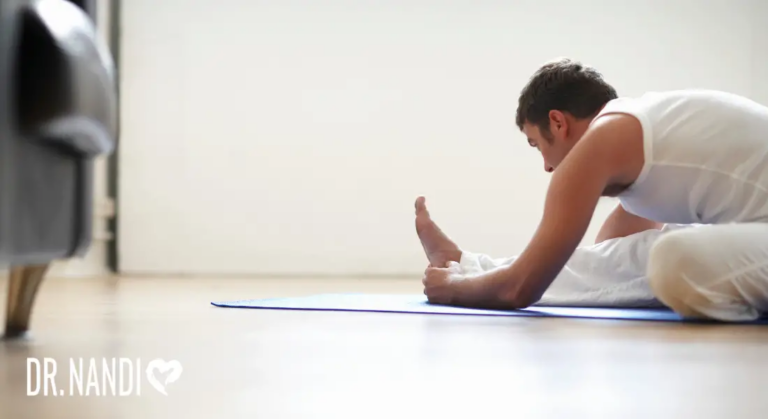In recent years much interest and research have been conducted focusing on sleep and health. Studies have shown that a good night’s sleep can help individuals maintain a healthy weight, diet, physical performance, etc. On the flip side, a lack of sleep can put them at risk of heart disease, diabetes, and a weaker immune system. (1, 2)
History of Napping
Most Americans would associate napping with an activity for toddlers or small children. Putting kids to sleep in the middle of the day for a few hours, so they don’t get cranky or tired has been done for a long time by both parents and teachers. They stopped this napping habit later in their childhood. However, adults and kids in other countries practice daily napping, sometimes called “siesta” in Spanish.
Although siesta is mainly associated with Spain, it is also fairly common practice in Latin America, Mediterranean countries, and places like Israel and Nigeria. This two-to-three-hour mid-day break is practiced a few times a week to every day in some cases.
During the hottest part of the day, the Romans thought it would be best for workers to nap since most worked outside. Later on, becoming very common in hot climate places.
Benefits of Napping
Nowadays, with the introduction of air conditioners, conducting work activities indoors, and longer commutes, a nap in the middle of the day seems impractical. However, recent research has shown beneficial effects related to napping, such as:
- Regular napping can reduce the risk of coronary disease and heart attack by up to 37%. (3)
- A midday power nap (up to 30 minutes) can improve cognitive performance, increase your alertness and make you feel refreshed. (4)
- Taking regular siestas may prevent obesity. One study showed that short-sleepers (who slept less than the seven recommended hours ) saw their risk of obesity decrease by 33% with daily 30-minute naps. (5)
- Napping it may reduce stress levels.
Suppose you want to get the most out of a nap. In that case, you should avoid caffeine after the morning hours, set the alarm to avoid oversleeping, find a comfortable place to nap, and wear earplugs or an eye mask.

Sleeper Reviewers
Because of the increasing popularity of napping research, a company named Each night was created, which focuses on sleep research. Each night gives people a clear understanding of how sleep works. Its advantages, and helpful tips on enhancing the beneficial effects of napping in everyday life, have launched a request to hire five nap reviewers.
These nap reviewers will be asked to nap every day for 30 days straight and report their experience. The study aims to gather essential data to be later analyzed to evaluate the daily napping practice’s pros and possible cons.
Note the study below has unfortunately expired but now you know the benefits of napping!
Applicants should be over 18 years old and submit their applications by May 31st, 2021, to apply for the nap reviewer position: https://eachnight.com/sleep-studies/get-paid-to-nap/. The chosen participants will be paid $50 per nap or $1,500 for the whole month.
My Personal RX:
Given the compelling research on the benefits of sleep and napping, it is evident that achieving the right balance can significantly contribute to an individual’s overall wellbeing. To help optimize your sleep patterns and manage stress levels, here are some recommendations:
- Maintain a Healthy Balanced Diet: It’s crucial to nourish your body with the right nutrients. A balanced diet rich in whole grains, fruits, vegetables, lean proteins, and healthy fats can help regulate your body’s natural sleep-wake cycle.
- Exercise Regularly: Regular physical activity can improve your sleep quality and duration. Try to incorporate a variety of exercises like cardio, strength training, and flexibility exercises into your weekly routine. Remember, it’s best to complete rigorous exercise at least a few hours before bedtime to not interfere with your sleep.
- Connect with Nature: Spend time outdoors when possible. Natural environments can help reduce stress levels and improve mood, which can indirectly enhance sleep quality. Consider outdoor activities like walking, hiking, gardening, or simply sitting in a park.
- Download My Sleep Guide: This free resource provides comprehensive advice and strategies for optimizing your sleep patterns. It covers everything from bedtime routines to the benefits of creating a sleep-friendly environment. Download My Sleep Guide here.
- Take My Sleep Max: This product is specifically designed to reset and optimize your sleep patterns. It helps to ensure you’re getting the restorative sleep you need to function optimally throughout the day. Order My Sleep Max here.
These strategies aim to boost your overall health and wellbeing by focusing on restorative sleep, balanced diet, regular exercise, and stress management. Remember, everyone’s needs are different, and what works best for one person may not work for another. It’s essential to listen to your body and find what strategies work best for you.





















